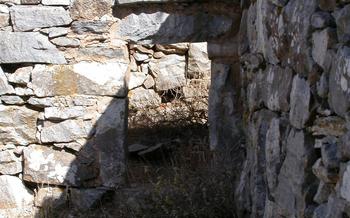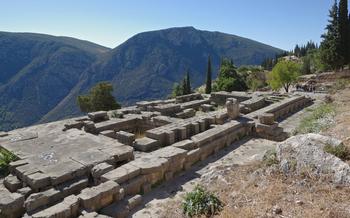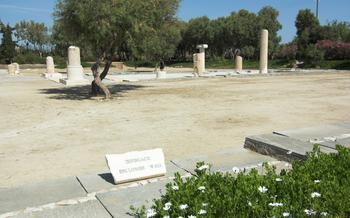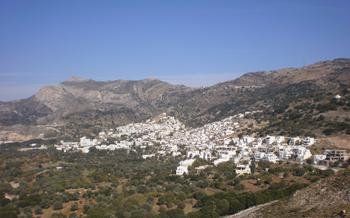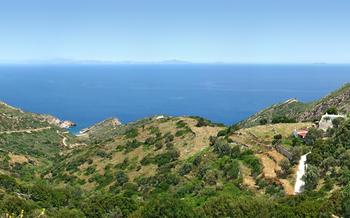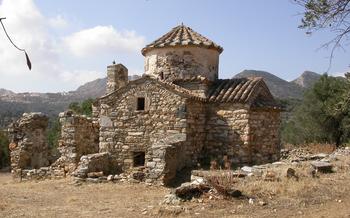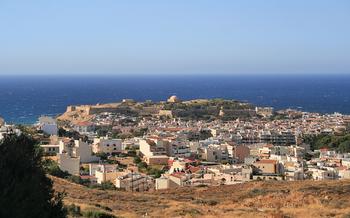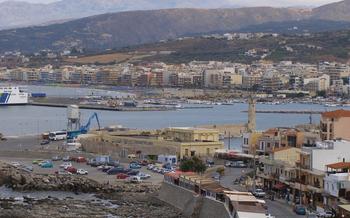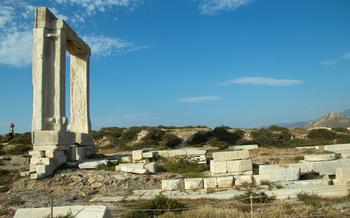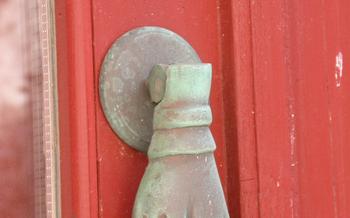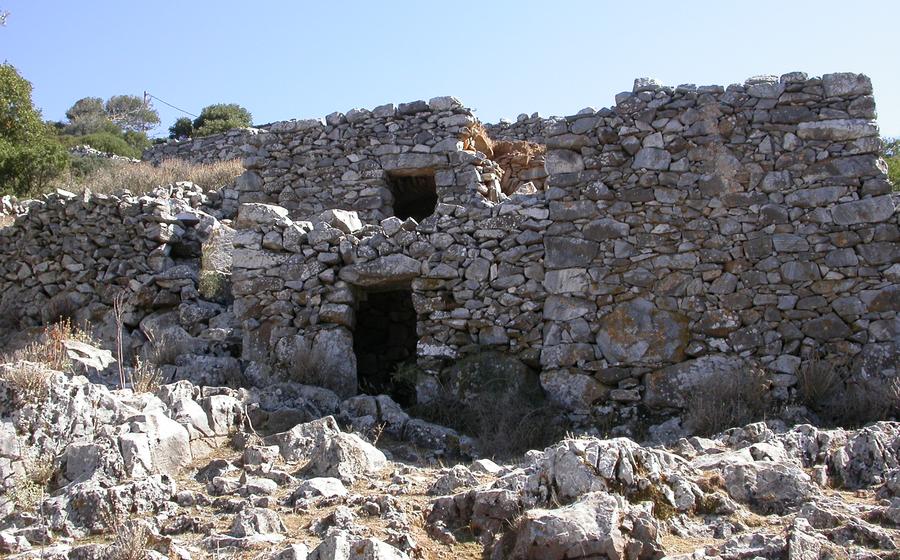
The Olive Museum in Eggares Village
- The Olive Museum in Eggares Village, Naxos
- The Importance of Olives in Greece
- The Olive Harvest in Naxos
- The Olive Press
- Olive Oil Production in Naxos
- The Olive Oil Industry in Naxos
- Olive Oil Tasting
- Olive Oil and Greek Cuisine
- Olive Oil and Cosmetics
- The Olive Museum Shop
- The Olive Museum Café
- The Olive Museum Garden
- The Olive Museum Events
- Insider Tip
The Olive Museum in Eggares Village, Naxos
For many, Naxos means long sandy beaches fringed by crystal-clear waters. However, Naxos has so much more to offer, and one of its hidden gems is the Olive Museum in Eggares Village, a beautiful medieval village nestled in the hills of central Naxos.
The Olive Museum is a unique place that celebrates the rich history and culture of olive cultivation in Naxos. It is housed in a traditional Naxian stone building that has been lovingly restored and converted into a museum.
The museum was founded in 1999 by a group of local farmers who were passionate about preserving the island's olive heritage. They gathered a collection of artifacts related to olive cultivation, including old tools, machinery, and photographs, and displayed them in the museum.
The exhibits in the Olive Museum tell the story of olive cultivation in Naxos from ancient times to the present day. Visitors can learn about the different types of olives grown on the island, the traditional methods of olive harvesting and pressing, and the importance of olives in Greek culture and cuisine.
The Importance of Olives in Greece
The olive tree is one of the most important trees in Greece. It has been cultivated in the country for thousands of years and plays a vital role in Greek culture and economy.
Olives were first brought to Greece from the Middle East around 3500 BC and quickly became an important part of the Greek diet. They were used as a source of food, oil, and medicine. Olives were also used in religious ceremonies and were considered to be a symbol of peace and prosperity.
Today, olives are still an important part of Greek life. They are used in a variety of dishes, including salads, main courses, and desserts. Olive oil is also a staple of the Greek diet and is used for cooking, frying, and dressing salads.
The olive tree is also an important part of the Greek economy. Greece is the third-largest producer of olives in the world, and olive oil is one of the country's most important exports. The olive oil industry provides jobs for thousands of people in Greece and contributes significantly to the country's GDP.
Olives are also a good source of vitamins and minerals. They are high in antioxidants, which can help to protect the body against cancer and other diseases. Olives are also a good source of fiber, which can help to improve digestion and reduce the risk of heart disease.
The Olive Harvest in Naxos
The olive harvest in Naxos is a centuries-old tradition that takes place every autumn. The exact timing of the harvest depends on the weather conditions, but it typically begins in October and runs through November. The first step in the harvest is to pick the olives from the trees. This can be done by hand or using a mechanical harvester. Once the olives have been picked, they are placed in baskets or sacks and transported to the olive press.
There are many different varieties of olives grown in Naxos, each with its own unique flavor and characteristics. The most common variety is the Koroneiki, which is known for its high oil content and mild flavor. Other popular varieties include the Manaki, the Tsounati, and the Athenolia.
The olives harvested in Naxos are used to produce a variety of products, including olive oil, table olives, and olive paste. Olive oil is the most important product, and it is used in a variety of Greek dishes, including salads, dips, and main courses. Table olives are also popular, and they are often served as a snack or appetizer. Olive paste is a spread made from crushed olives, and it is often used as a condiment or dip.
The Olive Press
An olive press is a machine used to extract oil from olives. It consists of a large stone wheel that rotates on a circular stone base. The olives are placed in the press and crushed by the wheel. The oil is then collected in a container.
Olive presses have been used in Greece for centuries. The earliest known olive press was found on the island of Crete and dates back to the Minoan period (2700-1450 BC). Olive presses were also used by the ancient Greeks and Romans.
In Naxos, there are a number of olive presses that are still in operation. These presses are typically family-run businesses that have been passed down from generation to generation. The olives are harvested in the fall and then taken to the press. The press is then used to extract the oil from the olives.
The oil is then stored in large containers and sold to local businesses and consumers. Olive oil from Naxos is known for its high quality and unique flavor.
Olive Oil Production in Naxos
Olive oil production in Naxos is a centuries-old tradition that has been passed down from generation to generation. The island's unique climate and soil conditions are ideal for growing olives, and the local farmers take great pride in their olive oil.
The olive harvest in Naxos typically takes place in November and December. Once the olives have been harvested, they are taken to the local olive press to be processed. The olives are first washed and then crushed into a paste. The paste is then placed in a press and squeezed to extract the oil.
The resulting olive oil is then filtered and stored in stainless steel tanks. The oil is allowed to settle for several months before it is bottled and sold.
Naxos produces a variety of different types of olive oil, each with its own unique flavor and aroma. The most common type of olive oil produced on the island is extra virgin olive oil. Extra virgin olive oil is made from the first pressing of the olives and has a low acidity level. It is considered to be the highest quality olive oil and has a fruity, peppery flavor.
Other types of olive oil produced in Naxos include virgin olive oil, which is made from the second pressing of the olives and has a higher acidity level than extra virgin olive oil; and pure olive oil, which is a blend of refined olive oil and virgin olive oil.
The olive oil produced in Naxos is of exceptional quality and has a reputation for being some of the best in Greece. The oil is exported all over the world and is enjoyed by people all over the globe.
The Olive Oil Industry in Naxos
The olive oil industry is a vital part of the economy of Naxos. There are over 200 olive oil producers on the island, and they produce over 2 million liters of olive oil each year. The olive oil industry provides jobs for hundreds of people and generates millions of euros in revenue for the island.
However, the olive oil industry in Naxos faces several challenges. One challenge is the increasing cost of production. The cost of labor, materials, and transportation has been rising in recent years. This has made it more difficult for olive oil producers to make a profit.
Another challenge is the competition from other olive oil-producing countries. Greece is the world's third-largest producer of olive oil, but it faces competition from other countries such as Spain, Italy, and Tunisia. These countries have lower production costs, and they can sell their olive oil at lower prices.
Despite these challenges, the future of the olive oil industry in Naxos looks bright. The demand for olive oil is growing worldwide, and Naxos is well-positioned to meet this demand. The island has a long history of olive cultivation, and its olive oil is known for its high quality. With continued investment and innovation, the olive oil industry in Naxos can continue to grow and prosper.
Olive Oil Tasting
Tasting olive oil is a sensory experience that allows you to appreciate the unique flavors and aromas of this liquid gold. To taste olive oil properly, start by pouring a small amount into a glass. Swirl the oil around the glass to release its aromas, then take a deep sniff. Pay attention to the fruity, floral, or grassy notes that you can detect.
Next, take a small sip of the oil and let it coat your mouth. Pay attention to the texture of the oil, as well as its taste. Good olive oil should be well-balanced, with a harmonious blend of bitterness, pungency, and sweetness.
If you're new to olive oil tasting, it's a good idea to start with a mild oil, such as one made from the Koroneiki variety of olive. As you become more experienced, you can try more intense oils, such as those made from the Tsounati or Megaritiki varieties.
There are many places in Naxos where you can taste olive oil. You can visit an olive oil mill, an olive oil shop, or an olive oil restaurant. You can also find olive oil tasting events held throughout the year.
When you're tasting olive oil, it's important to pay attention to the following factors:
- Color: Olive oil can range in color from pale yellow to deep green. The color of the oil is not an indication of its quality.
- Aroma: Olive oil should have a fruity, floral, or grassy aroma. Avoid oils that have a rancid or musty smell.
- Taste: Olive oil should have a well-balanced taste, with a harmonious blend of bitterness, pungency, and sweetness. Avoid oils that are too bitter, too pungent, or too sweet.
- Texture: Olive oil should have a smooth, velvety texture. Avoid oils that are watery or grainy.
Olive Oil and Greek Cuisine
Olive oil is an essential ingredient in Greek cuisine. It is used to dress salads, marinate meats, and add flavor to vegetables. Olive oil is also used in baking and frying. The unique flavor and aroma of olive oil complement the fresh, Mediterranean ingredients that are used in Greek cooking.
Olive oil is a healthy fat that is good for your heart. It is also a good source of antioxidants, which can help protect your cells from damage. Olive oil has been shown to reduce the risk of heart disease, stroke, and cancer.
When you are in Naxos, be sure to try some of the local olive oil. You can find it in restaurants, shops, and even at the Olive Museum. Drizzle some olive oil on your salad, use it to marinate your chicken, or add it to your favorite pasta dish. You will be amazed at how much flavor it adds to your food.
Olive Oil and Cosmetics
Olive oil is a versatile product with many uses beyond the kitchen. It has been used in cosmetics for centuries due to its emollient and moisturizing properties. Olive oil is rich in antioxidants, which can help protect the skin from damage caused by free radicals. It also contains vitamins A, D, and E, which are essential for healthy skin.
Olive oil can be used in a variety of cosmetic products, including soaps, lotions, creams, and lip balms. It can also be used as a massage oil or as a hair conditioner. Olive oil is generally safe for all skin types, but it is important to test a small amount on your skin before using it on a large area.
In Naxos, you can find a variety of olive oil-based cosmetics at local shops and pharmacies. Look for products that are made with extra virgin olive oil, which is the highest quality olive oil available. You can also find olive oil-based cosmetics at the Olive Museum shop.
Some of the benefits of using olive oil-based cosmetics include:
- Moisturization: Olive oil is a natural emollient that can help to keep your skin hydrated and soft.
- Antioxidant protection: Olive oil is rich in antioxidants, which can help to protect your skin from damage caused by free radicals.
- Anti-aging: Olive oil contains vitamins A, D, and E, which are essential for healthy skin and can help to reduce the appearance of wrinkles.
- Soothing: Olive oil can help to soothe irritated skin and reduce inflammation.
- Versatility: Olive oil can be used in a variety of cosmetic products, making it a great option for all skin types.
If you are looking for a natural and effective way to improve your skin's health, consider using olive oil-based cosmetics. You can find a variety of olive oil-based cosmetics at local shops and pharmacies in Naxos, as well as at the Olive Museum shop.
The Olive Museum Shop
The Olive Museum shop is a great place to buy high-quality olive oil-related souvenirs. The shop sells a variety of products, including olive oil, olives, soaps, cosmetics and other gift items. All of the products are made with high-quality ingredients and are produced using traditional methods.
The prices of the products sold at the Olive Museum shop are reasonable. A bottle of olive oil costs about €10, a jar of olives costs about €5 and a bar of soap costs about €The shop also offers a variety of gift sets, which are a great way to save money.
Buying souvenirs at the Olive Museum shop is a great way to support the museum and its mission to preserve and promote the olive culture of Naxos. The shop also offers a unique shopping experience, as it is located in a beautiful old olive mill.
The Olive Museum Café
The Olive Museum Café is a charming spot to relax and enjoy a light meal or snack after exploring the museum. The café offers a variety of Greek dishes, all made with fresh, local ingredients. You can choose from a selection of salads, sandwiches, and pastries, as well as a variety of hot and cold beverages.
The food is delicious and reasonably priced, and the service is friendly and attentive. The café is also a great place to learn more about olives and olive oil. The staff is knowledgeable and passionate about their products, and they are always happy to answer any questions you may have.
Whether you are looking for a quick bite to eat or a place to relax and enjoy a leisurely meal, the Olive Museum Café is a great option. The food is delicious, the service is excellent, and the atmosphere is warm and inviting.
The Olive Museum Garden
The Olive Museum in Eggares Village, Naxos, boasts a beautiful and educational garden that offers visitors a chance to learn more about the cultivation and history of olives. In this garden, you can find a variety of olive trees, including some that are hundreds of years old. There are also exhibits on the different types of olives grown in Naxos, as well as the traditional methods used to harvest and press olives.
The Olive Museum garden is a great place to relax and learn about the importance of olives in Greek culture. You can stroll through the trees, admire the flowers, and enjoy the fresh air. There are also several benches where you can sit and take in the scenery.
If you are interested in learning more about olives, the Olive Museum garden is a must-see. It is a beautiful and educational space that offers visitors a unique glimpse into the world of olives.
The Olive Museum Events
The Olive Museum is a dynamic and vibrant space that regularly hosts a variety of events to promote the appreciation and understanding of olives and olive oil. These events are open to the public and offer a unique opportunity to learn more about the history, culture, and gastronomy of Naxos.
Throughout the year, the museum organizes workshops, seminars, and cooking classes that focus on different aspects of olive cultivation, production, and consumption. Visitors can participate in hands-on activities such as olive picking, olive oil tasting, and soap making, while learning about the traditional techniques and methods used in Naxos.
The museum also hosts cultural events such as concerts, exhibitions, and film screenings that celebrate the rich heritage of the island. These events provide a platform for local artists and artisans to showcase their work and share their knowledge with visitors.
For those interested in a more immersive experience, the museum offers guided tours of the olive groves, olive press, and museum exhibits. These tours provide a comprehensive overview of the olive oil making process and the history of olive cultivation in Naxos.
To find out more about upcoming events and activities, visitors can check the museum's website or contact the museum directly. The friendly and knowledgeable staff is always happy to answer questions and provide assistance.
Insider Tip
A secret spot in the Olive Museum that most people don't know about:
In the back of the Olive Museum, there is a small, hidden garden that is not open to the public. This garden is home to a collection of ancient olive trees, some of which are over 1,000 years old. If you are lucky, you may be able to convince the museum staff to give you a tour of this hidden gem.
A little-known fact about the Olive Museum:
The Olive Museum is home to a collection of over 1,000 olive oil bottles from all over the world. This collection is one of the largest of its kind in the world and is a testament to the importance of olives in global culture.
A unique experience that you can have at the Olive Museum:
Every year, the Olive Museum hosts a traditional olive harvest festival. During this festival, visitors can learn about the history of olive cultivation in Naxos, watch demonstrations of traditional olive harvesting techniques, and taste fresh olive oil. The festival is a great way to experience the culture and traditions of Naxos, and to learn more about the importance of olives in Greek life.
